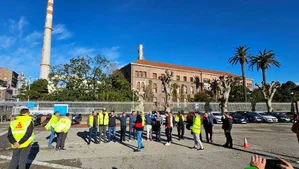Significant Changes in Family Leave and Retirement Policies in Spain for 2025

As the new year unfolds, Spain is implementing several key changes that will significantly impact families and workers, particularly expats residing in the country.
Enhanced Childcare Leave for Single Parents
In a landmark ruling, Spain's Constitutional Court has declared that the current childcare leave provisions are unconstitutional, as they unfairly discriminate against children in single-parent families. Effective from November 6, 2024, biological mothers in single-parent families are now entitled to a total of 26 weeks of government-paid childcare leave. This change ensures that children in single-parent families receive the same total period of care time as those in two-parent families.
Under the new rules, single parents can combine the 16 weeks of leave available to the biological mother with an additional 10 weeks, mirroring the leave provided for a second parent. This adjustment addresses the previous disparity where single-parent families were limited to just 16 weeks of leave, while two-parent families could take up to 32 weeks.
New Immigration Regulations
Spain is also set to introduce new immigration measures aimed at simplifying processes, enhancing integration opportunities, and strengthening protections for migrant workers. These changes, which will come into effect on May 20, 2025, include streamlined visa procedures, clearer formal visa requirements, and five flexible integration pathways: social, socio-training, socio-occupational, family, and second-chance integration.
The new regulations will facilitate family reunification, improve living conditions and safety standards for migrant workers, and provide businesses with more flexible recruitment processes to hire international talent. These measures align with European directives and standards, making Spain a more welcoming and efficient destination for migrants.
Changes in Retirement Age and Policies
For those nearing retirement, Spain's legal retirement age has been adjusted as part of a progressive reform initiated in 2013. As of January 1, 2025, the retirement age for a full pension has increased to 66 years and 8 months for those with less than 38 years and 3 months of contributions. Workers with more than 38 years and 3 months of contributions can still retire at 65 years old.
Additionally, there are changes in partial and active retirement policies. Workers can access partial retirement without a replacement contract at the regular retirement age, or at 62 years and 8 months if the company hires a replacement. Early voluntary retirement is possible up to 24 months before the legal retirement age, with the minimum age set at 64 years and 8 months for those who have contributed for at least 35 years.
Starting April 1, 2025, the regulation of partial retirement, active retirement, and deferred retirement will be improved. These changes include extending the possibility of early access to retirement age, improving conditions for substitute workers, and making active retirement more compatible with delay incentives. This aims to allow workers a more gradual and flexible exit from the labor market.
Extended Parental Leave Proposals
The Spanish government is also proposing to extend parental leave, aiming to strengthen family life. Currently, both maternity and paternity leave are set at 16 weeks, but the proposal suggests increasing this to 20 weeks. This move aligns with the broader efforts to support families and ensure better work-life balance.
These changes reflect Spain's commitment to modernizing its social and labor policies, ensuring greater equality, support for families, and a more inclusive environment for both citizens and expats. As these new regulations come into effect, expats in Spain can look forward to a more supportive and flexible legal framework that addresses various aspects of family and work life.
Related Stories

Over 2,600 Aspirants Participate in Initial Public Employment Exams for 2023-2024 in Suffolk and Monroe Counties
Over 2,600 candidates vie for public sector roles in Suffolk and Monroe counties, marking a keen interest in civil service careers for 2023-2024.

Cantabria Leads in Creation of Indefinite Employment Positions Following Labor Reform
Cantabria leads Spain in creating stable jobs post-labor reform, setting a positive precedent for national employment stability and growth.

New Mediation Called in Solvay Logistics Strike in Spain
In a bid to resolve the ongoing strike at Solvay's Spanish logistics division, Orecla announces a new mediation session, aiming to reconcile worker demands with company operations.

Significant Changes in Labor Laws and Housing Regulations in Spain: What Expats Need to Know
Spain introduces major labor and housing law reforms, impacting expats with changes to temporary contracts, eviction procedures, and climate-related labor measures.

Spain Set to Implement Shorter Work Week Starting 2025
Spain to reduce its work week to 37.5 hours by 2025, aiming to improve work-life balance for 12 million employees, following an agreement led by Labour Minister Yolanda Díaz.